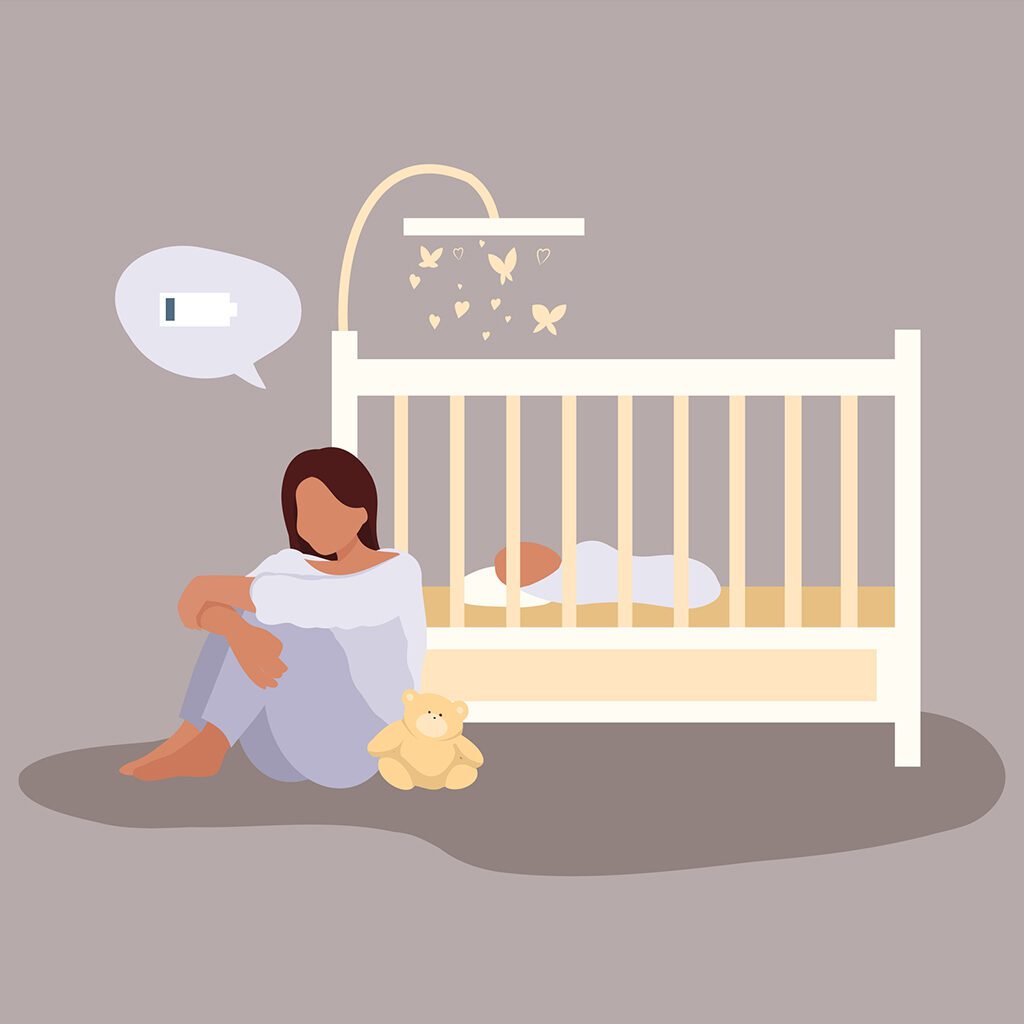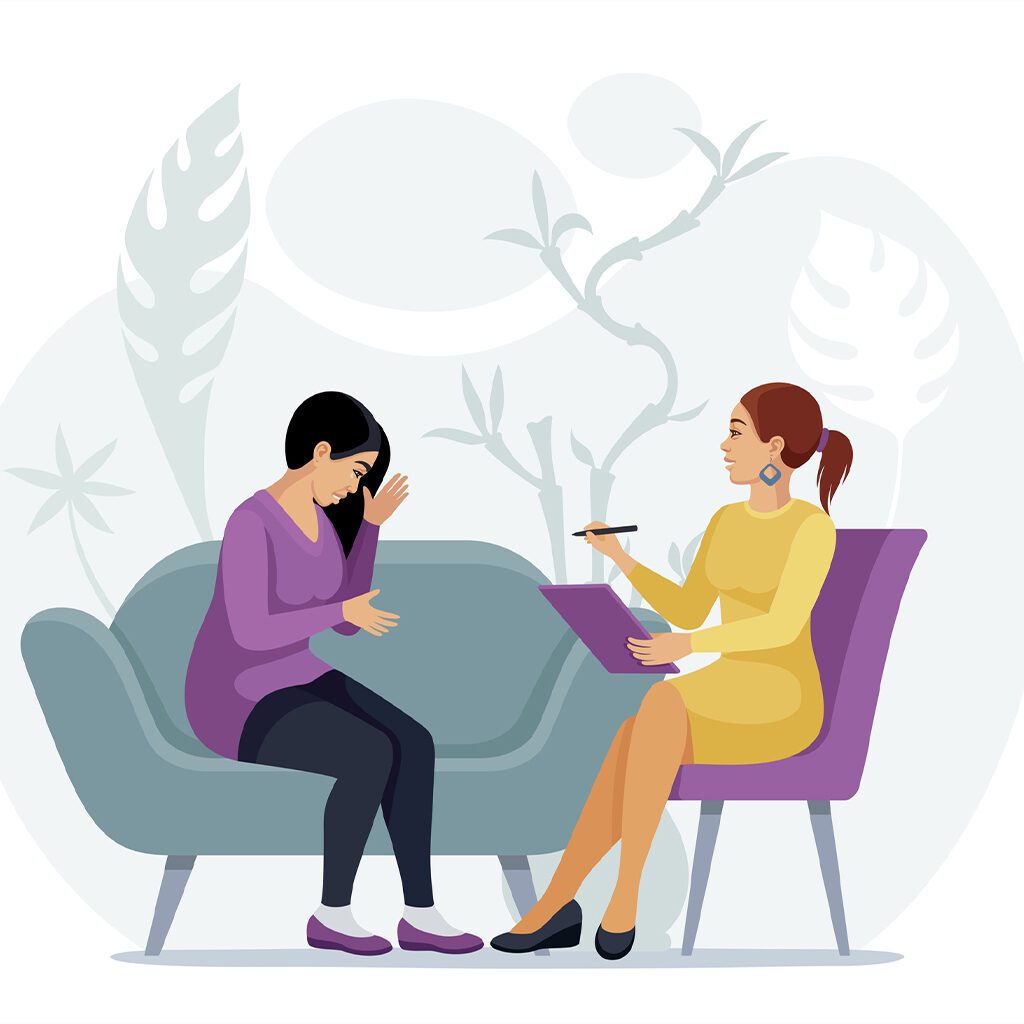Helpful Information for Moms Dealing with Postpartum Depression
When you bring your newborn home from the hospital, you know one thing’s for sure: Everything is going to change. But while ushering in this exciting new season of life, something may feel off. You may find yourself confronting unexpected feelings of sadness and anxiety. Postpartum depression (PPD) can overwhelm the joys of motherhood, casting a shadow over your mood and behavior that can be debilitating. Identifying the signs of postpartum depression – and knowing you are not alone – can help you find the care you need to care for others.
More Than Just the "Baby Blues"
A lack of energy is normal. For nine months you’ve not only carried and nurtured your child in uncountable ways, but now you are also faced with the day-to-day (and night) of providing for your newborn. As such, bouts of exhaustion and feeling down are logical. But when do fluctuations in energy and mood rise to the level of postpartum depression?
The degree and duration of your symptoms indicate whether it’s post-birth blues or PPD. Signs of “baby blues” include moderate mood swings, crying spells, and feeling sad or anxious. You may even feel guilty about what you’re feeling – but you are not alone. As many as 80% of new mothers have the baby blues. While the blues have you down during a momentous milestone, the good news is it will pass. “The baby blues tend to fade within a few days to a week or two after giving birth, while postpartum depression can last months,” explains Dr. Kathleen Goyne, a psychiatrist with Tennova Behavioral Health of Cleveland.

Postpartum depression does not go away on its own. Plus, the symptoms are often more pronounced. Extreme mood swings and shifts in behavior are indicators, such as eating and sleeping too much or too little, excessive crying, withdrawal from family and friends, and lacking motivation or interest. Physical pain ranging from persistent headaches to stomach troubles can also occur. Women with PPD can experience racing or scary thoughts, even thoughts of hurting themselves or their baby. These symptoms are compounded by an overwhelming sense of guilt and paralyzing fear about being a good mother.
Affecting up to 1 in 7 women, postpartum depression is a serious medical condition that needs to be addressed with a doctor or nurse. If left untreated, PPD can hinder mother-child bonding and put a strain on the entire family.
What Causes Postpartum Depression?
While there is no single cause of PPD, certain risk factors can increase the likelihood of PPD. “The strongest link is a history of depression,” explains Dr. Goyne. “Women who have a family history with mood disorders, as well as those who experienced depression during pregnancy or postpartum depression after a previous pregnancy, may be at a higher risk.”
External stressors are also linked to postpartum depression. Moms whose babies have health problems or special needs are more prone to developing PPD. Having difficulty breastfeeding is also a factor. Additionally, relationship and money problems or a weak support system in your personal life can contribute to PPD symptoms.
Physical and emotional conditions play a role too. On the physical side, fluctuations in reproductive and stress hormones during pregnancy and the postpartum period contribute. Tessa Eckhardt, a certified family nurse practitioner with Women’s Health Services, explains, “The abrupt decline in levels of estrogen and progesterone after delivery lead to chemical alterations in the brain that may trigger mood changes similar to those seen before a menstrual cycle but on a much larger scale.”
Emotions also present challenges. You may feel so overwhelmed and anxious that you don’t know where to begin. In the midst of this topsy-turvy ride of emotions, you may struggle with your sense of identity or feel as if you are losing control. “Depression is situational,” explains Dr. Shevonda Sherrow, an OB-GYN with Innovative Women’s Health Specialists. “Maybe after your first child things were great – you got to stay home, and you had lots of family support. Say you’re on your third pregnancy – maybe you’ve moved away and have to work. Now you’re adding more burden. This can lead to higher cortisol levels and less sleep, which could put you down the path of PPD.”
When Is It Time to Call the Doctor?


“While some symptoms of depression, such as decreased energy and difficulty sleeping, are common in new mothers, persistent anxiety, sadness, and negative thoughts may be signs of a more serious problem,” explains Eckhardt. “If your baby blues last longer than 14 days postpartum or you notice a significant change in your mood and ability to perform day-to-day tasks, call your doctor right away.”
What to Do
“If you’re feeling down and despondent, overwhelmed and anxious, talk to your doctor,” says Dr. Goyne. “There are great resources available to you. It’s hard to be a new mom, and you need all the support you can get.”
There is no need to feel shame or embarrassment. Your doctor can help you distinguish between baby blues and PPD and set you on the proper course of action.
“There are several different screening tools that may be used for PPD, but the most commonly used is the Edinburgh Postnatal Depression Scale, or EPDS,” explains Eckhardt. “It consists of 10 questions targeted at evaluating both depression and anxiety and can be completed quickly during a routine postpartum visit. To distinguish between normal changes that occur with motherhood and possible PPD, your doctor should do a full emotional well-being assessment in addition to an EPDS to assess your mood.”
Your doctor may also request blood tests to see if other factors are contributing to your symptoms, such as an underactive thyroid, or to rule out another possible condition.
Feeling Better
After consultation, your doctor may recommend therapy or medicine, or a combination of both. “Medicine acts as the crutches that help you get through the first part of the injury,” explains Dr. Sherrow. “It helps level out your serotonin levels, get you back on an appropriate circadian rhythm, and heal your body from the inside out.” Antidepressants are the most commonly prescribed medications for PPD. It’s important to note, these can take a few weeks to start working. New, synthetic versions of hormones have also been found effective for treating symptoms. Counseling can provide strategies for coping with how PPD affects your mood and behavior.
It is also okay to take some “me time.” In addition to professional treatment, giving yourself some tender loving care can boost your mood. Exercise may have an antidepressant-like benefit for women with PPD.


Even a quick 10-minute workout is shown to lift mood and energy levels. That being said, also find moments to decompress. This is where your partner, family, and friends can help out. Try to squeeze in a
nap while your baby sleeps or while you have extra hands on deck. Going out might feel like one more thing you have to do, but connecting with friends and other moms can be time well spent.
A healthy diet helps too. Whole foods such as fruits and vegetables that you can grab on the go provide a quick source of feel-good nutrients. Supplements such as fish oil are also linked to improving symptoms associated with PPD. While some women experience depression during breastfeeding, a National Institutes of Health study found that mothers who breastfeed are less likely to develop symptoms of PPD. Ultimately, tailor at-home options to find what works best for you. “The biggest piece of advice I can offer any woman facing PPD is to remember there is nothing wrong with you,” says Dr. Sherrow. “Don’t deny it’s happening. It’s life, and there are a lot of things going on. Talk to your doctor, talk to a friend, and get help.”
Postpartum depression does not have to keep you down. As all mothers can relate, sleepless nights and sluggish days are natural. But the overwhelming emotional and physical pains of PPD are unnecessary burdens you can live without. With a combination of professional and personal support, you can get back to being yourself and cherish the gift of motherhood. HS


Tessa Eckhardt
Certified Family Nurse Practitioner, Associates in Women's Health


Dr. Kathleen Goyne
Psychiatrist, Tennova Behavioral Health of Cleveland


Dr. Shevonda Sherrow
OB-GYN, Innovative Women's Health Specialists

